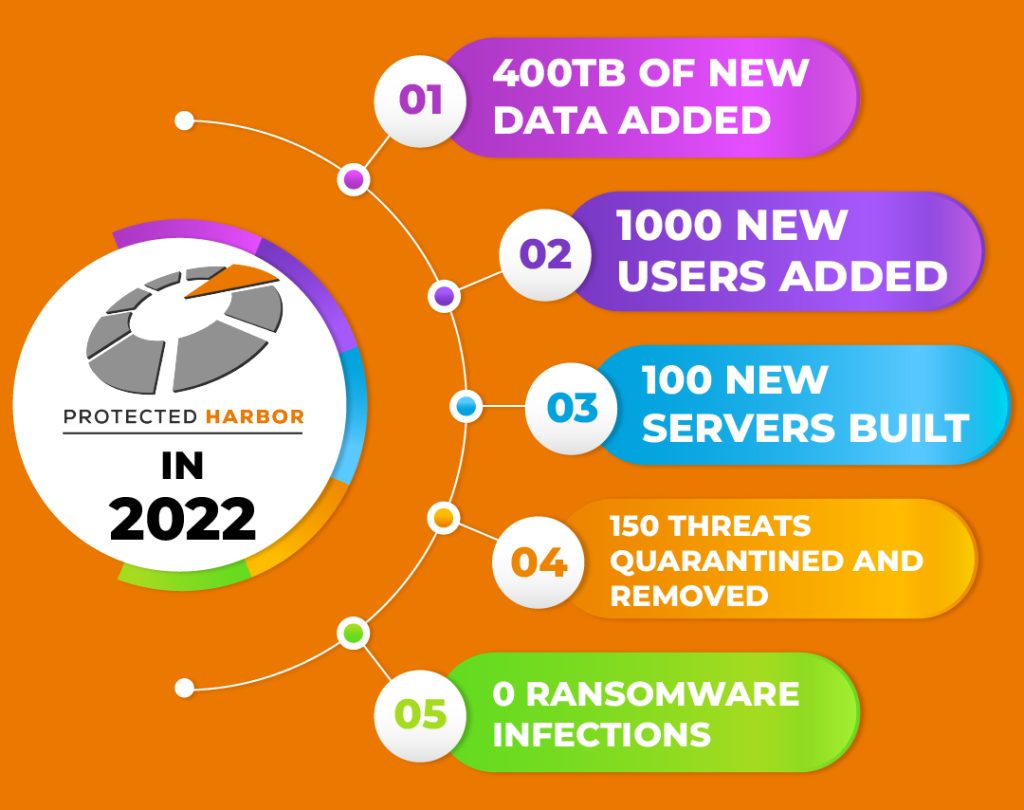IT Services for Non-profit Organizations
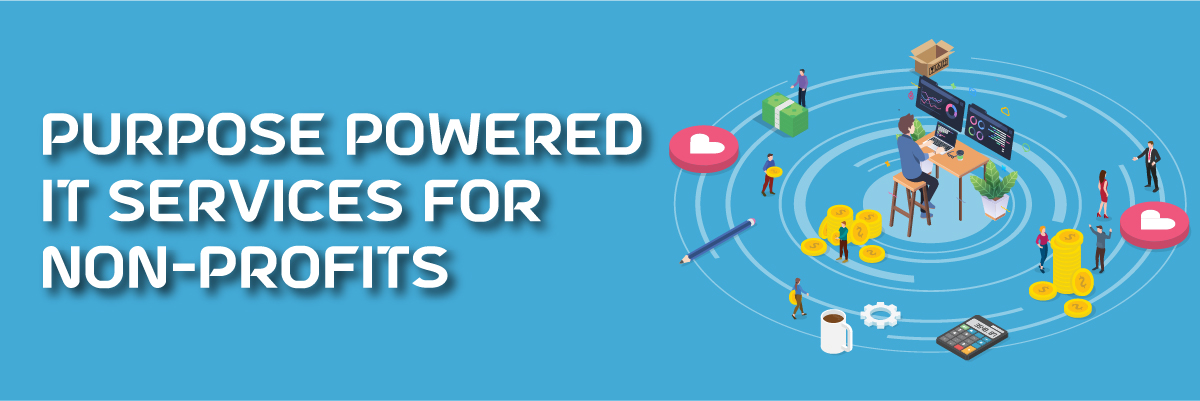
IT Services for Non-profit Organizations
Running a non-profit can be challenging, especially when it comes to managing resources and staying competitive in a crowded field. One area that can make a significant impact on the success of a non-profit is information technology (IT).
IT services are becoming increasingly important for non-profit organizations as they work to achieve their missions and goals. These services can range from basic computer and network support to more advanced services such as data analysis and management, website development, and cloud computing.
Following are the various IT services that can help non-profit organizations achieve their goals and better serve their communities.
Data Management
Data management is the process of organizing, storing, and protecting data, including sensitive information such as social security numbers and personal data. One aspect of data management is selecting the appropriate infrastructure to support data storage and access.
Infrastructure as a Service (IaaS) is a model that allows businesses to rent computing infrastructure from cloud providers such as Amazon Web Services and Microsoft Azure. IaaS allows businesses to scale up or down as needed and implement disaster recovery solutions to protect data in case of a system failure.
Another cloud infrastructure model is Software as a Service (SaaS), which allows businesses to access software applications through the Internet. Data management also includes protecting data from social engineering attacks, which may attempt to trick employees into revealing sensitive information.
Hybrid cloud solutions combine private and public cloud infrastructure, allowing businesses to maintain control over sensitive data while leveraging the scalability and flexibility of public cloud solutions. Effective data management requires a comprehensive approach to security, including the use of encryption, access controls, and regular backups to ensure the integrity of data.
It is a critical aspect of running a successful non-profit organization. Non-profits often collect a large amount of data on donors, volunteers, and clients that must be organized and kept secure. This data can include personal information, contact details, donation history, and more.
Proper data management enables non-profits to identify their most active supporters, understand their giving patterns, track volunteer engagement, and measure the impact of their programs and services. This can help all enterprises to maximize their efforts and resources and better serve their communities.
Cloud Services
Cloud computing delivers IT services, such as servers, storage, databases, networking, software, analytics, and intelligence, over the internet (“the cloud”) to offer faster innovation, flexible resources, and economies of scale. Non-profit organizations can benefit from cloud computing in several ways.
One of the main benefits of cloud computing for non-profits is cost savings. Traditional IT infrastructure can be expensive to maintain and upgrade. With cloud computing, non-profits can reduce hardware and software purchases, management, and data center operations costs. Instead, they pay for only the services they need on an as-needed basis, saving money in the long run.
Another benefit of cloud computing is increased collaboration and communication. Cloud-based services, such as Remote Desktop, allow non-profits to share files, collaborate on documents and projects, and communicate in real time, regardless of location. This can increase productivity and efficiency among staff, volunteers, and partners.
Cloud computing also enables organizations to access and work on their data remotely. All that is needed is an internet connection. This can be particularly beneficial for organizations with staff and volunteers who work remotely or travel frequently.
 Cybersecurity
Cybersecurity
Cybersecurity guards against attacks, damage, and unauthorized access to systems connected to the internet, including their hardware, software, and data. Non-profits, like any other organization, must be mindful of potential risks. They should take action to secure their sensitive information and systems.
One of the main risks for non-profits is the potential loss or theft of sensitive information such as donor or client data. Non-profits often collect and store personal information, such as names, addresses, and financial information, which can be valuable to cybercriminals. A data breach can result in the loss of this information, damage the organization’s reputation, and cause trust issues with its constituents.
Another risk for organizations is the potential disruption of their operations. Cyberattacks can take down websites, disrupt communication systems, or cause problems preventing non-profits from carrying out their mission. This can lead to a loss of revenue, wasted resources, and a decline in public trust.
Cybersecurity is also essential for non-profits because of regulatory compliance requirements which many non-profits must follow. Two are the General Data Protection Regulation (GDPR) and the Health Insurance Portability and Accountability Act (HIPAA). These regulations have specific requirements for protecting sensitive information.
Non-profits need to have a robust cybersecurity strategy and take steps to protect their systems and data, such as regular software updates, employee education, and incident response planning. By taking cybersecurity seriously, non-profits can mitigate risks and better serve their communities.
IT Is Essential
IT services are essential for non-profit organizations to achieve their mission and goals. IT can range from basic computer and network support to more advanced services such as data analysis and management, cloud computing, and cybersecurity. These services can help non-profits store, organize, and analyze data, reach the target audience, and reduce costs.
Non-profits need to work with experienced IT professionals who can provide guidance and support.
Protected Harbor is the ideal choice for non-profit organizations. We provide a comprehensive compliance framework, which includes detailed documentation, processes, and procedures. This allows organizations to understand and comply with regulations. It also contains tools for data discovery, risk assessment, and incident response, which can help non-profits to identify and mitigate potential risks.
We also deliver a cost-effective solution, an easy-to-use interface, and ongoing support and guidance. These features can help companies to achieve compliance and protect sensitive information, so they can better serve their communities and complete their missions.
If you’re ready to improve your non-profit’s IT services, consider getting a free IT audit today. An IT audit can help you to understand your current IT infrastructure, identify areas for improvement, and develop a plan for implementing new technologies and best practices.
By taking advantage of our free IT audit, you’ll be able to:
- Understand your current IT infrastructure
- Identify areas for improvement
- Develop a plan for implementing new technologies and best practices
- Get a better understanding of your IT security posture
Be sure to improve your non-profit’s IT services immediately. Contact us today to schedule your free IT audit and maximize your organization’s potential.





 Flexibility: There are many ways to solve IT issues, and we know that. However, your IT team should be deploying solutions that can solve multiple problems. For example, when upgrading to a new system, your IT partner may recommend or automatically add multi-factor authentication to your new system, increasing security. They should automatically find ways to solve future potential problems even if they don’t exist yet.
Flexibility: There are many ways to solve IT issues, and we know that. However, your IT team should be deploying solutions that can solve multiple problems. For example, when upgrading to a new system, your IT partner may recommend or automatically add multi-factor authentication to your new system, increasing security. They should automatically find ways to solve future potential problems even if they don’t exist yet.
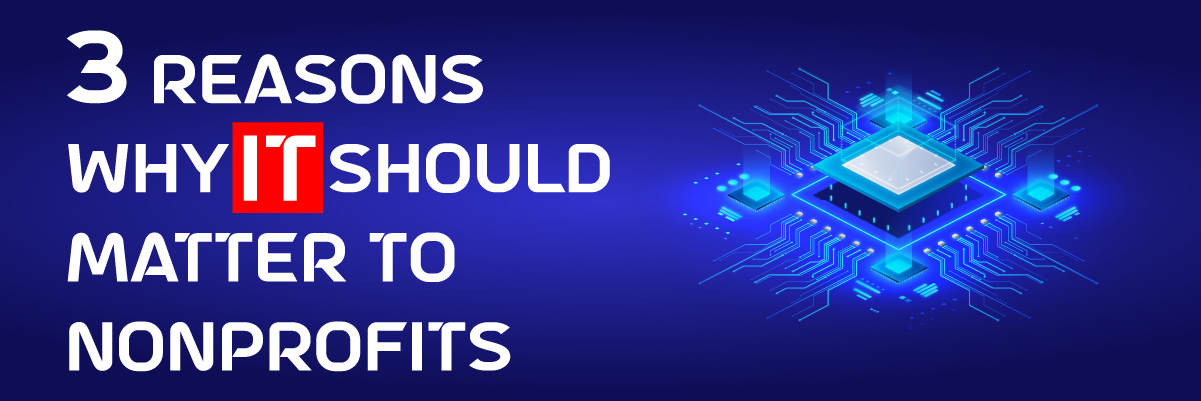
 Increased Efficiency
Increased Efficiency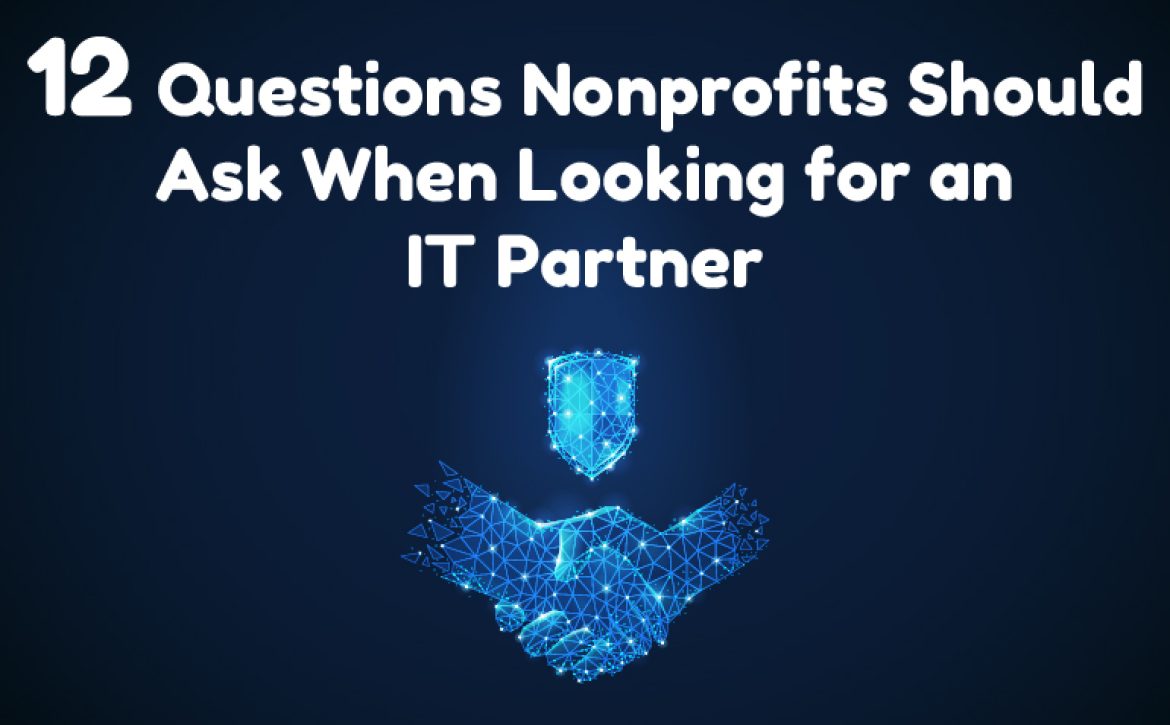
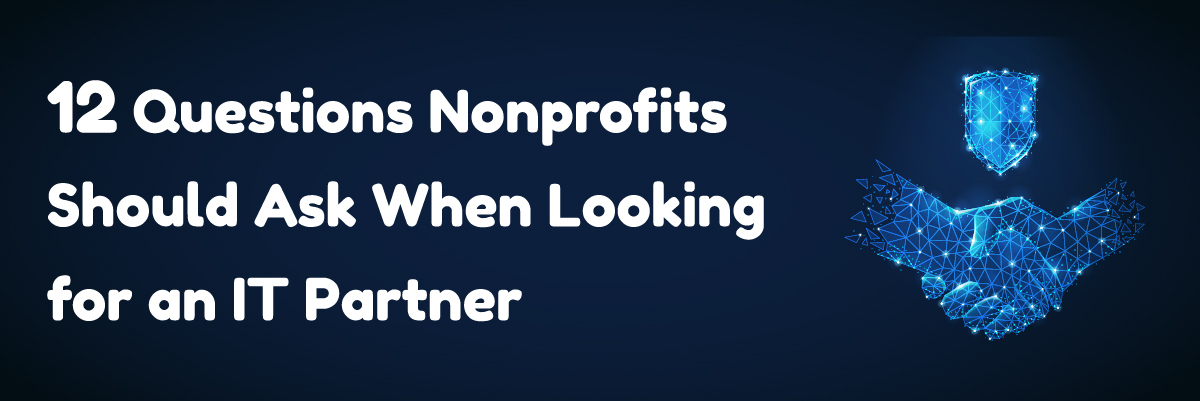



 IT Updates for Tech Leaders
IT Updates for Tech Leaders

 What To Look for in a Great IT Support Team?
What To Look for in a Great IT Support Team?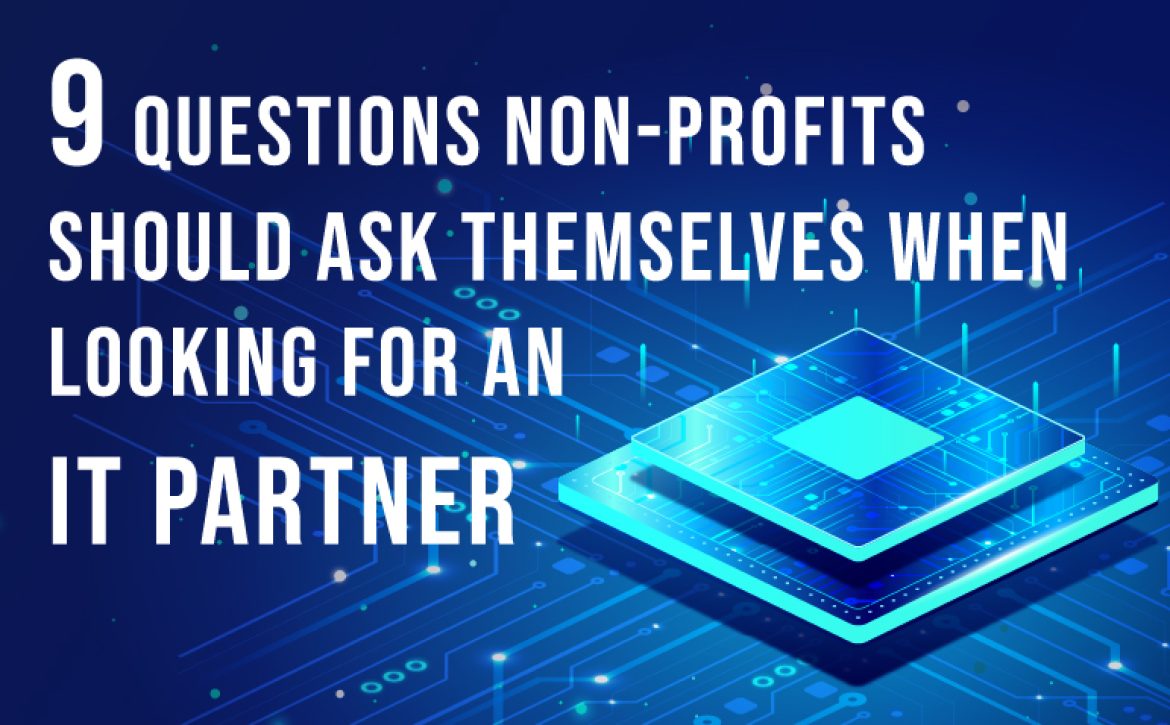
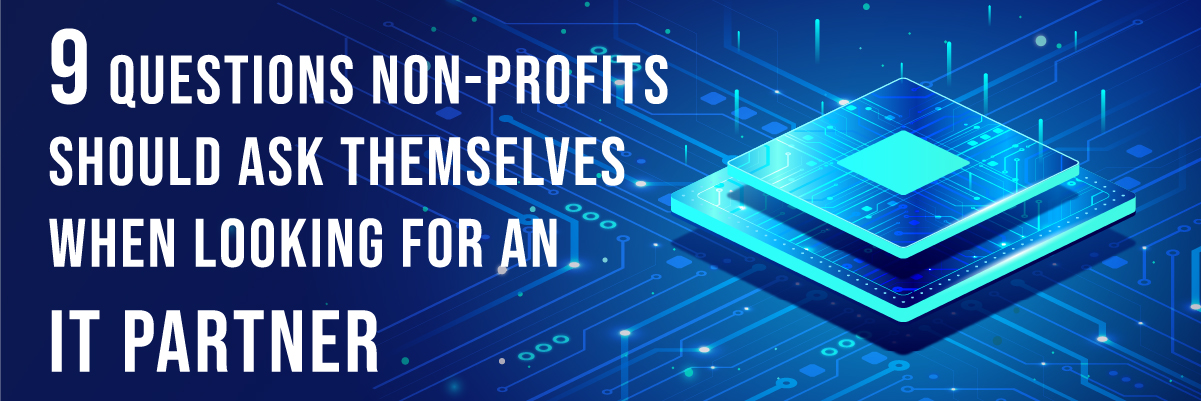



 What are the Benefits of Using Managed IT Services?
What are the Benefits of Using Managed IT Services?

 Why is IT Important for Businesses?
Why is IT Important for Businesses?
 Cybersecurity Risks and Solutions
Cybersecurity Risks and Solutions